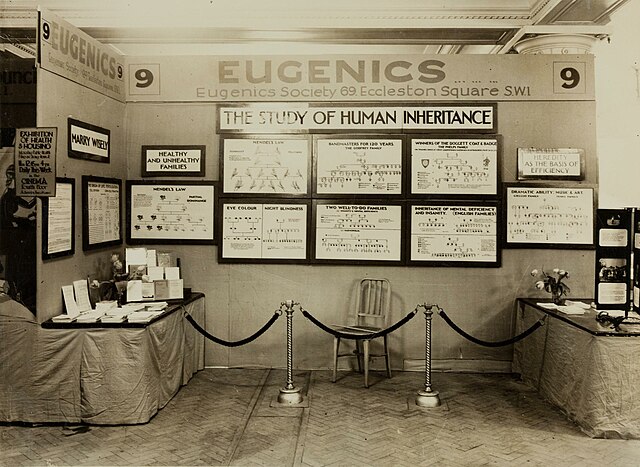Major General Frederick Henry Osborn CBE was an American philanthropist, military leader, and eugenicist. He was a founder of several organizations and played a central part in reorienting eugenics in away from overt racism in the years leading up to World War II. The American Philosophical Society considers him to have been "the respectable face of eugenic research in the post-war period."
Eugenics Quarterly
Eugenics is a set of beliefs and practices that aim to improve the genetic quality of a human population. Historically, eugenicists have attempted to alter human gene pools by excluding people and groups judged to be inferior or promoting those judged to be superior. In recent years, the term has seen a revival in bioethical discussions on the usage of new technologies such as CRISPR and genetic screening, with heated debate around whether these technologies should be considered eugenics or not.
A 1930s exhibit by the Eugenics Society. Two of the signs read "Healthy and Unhealthy Families" and "Heredity as the Basis of Efficiency".
Francis Galton, an early eugenicist, coined the term itself.[need quotation to verify]
G. K. Chesterton, an opponent of eugenics, photographed by Ernest Herbert Mills in 1909
Schloss Hartheim, a former center for Nazi Germany's Aktion T4 campaign



![Francis Galton, an early eugenicist, coined the term itself.[need quotation to verify]](https://upload.wikimedia.org/wikipedia/commons/thumb/e/ec/Francis_Galton_1850s.jpg/441px-Francis_Galton_1850s.jpg)

